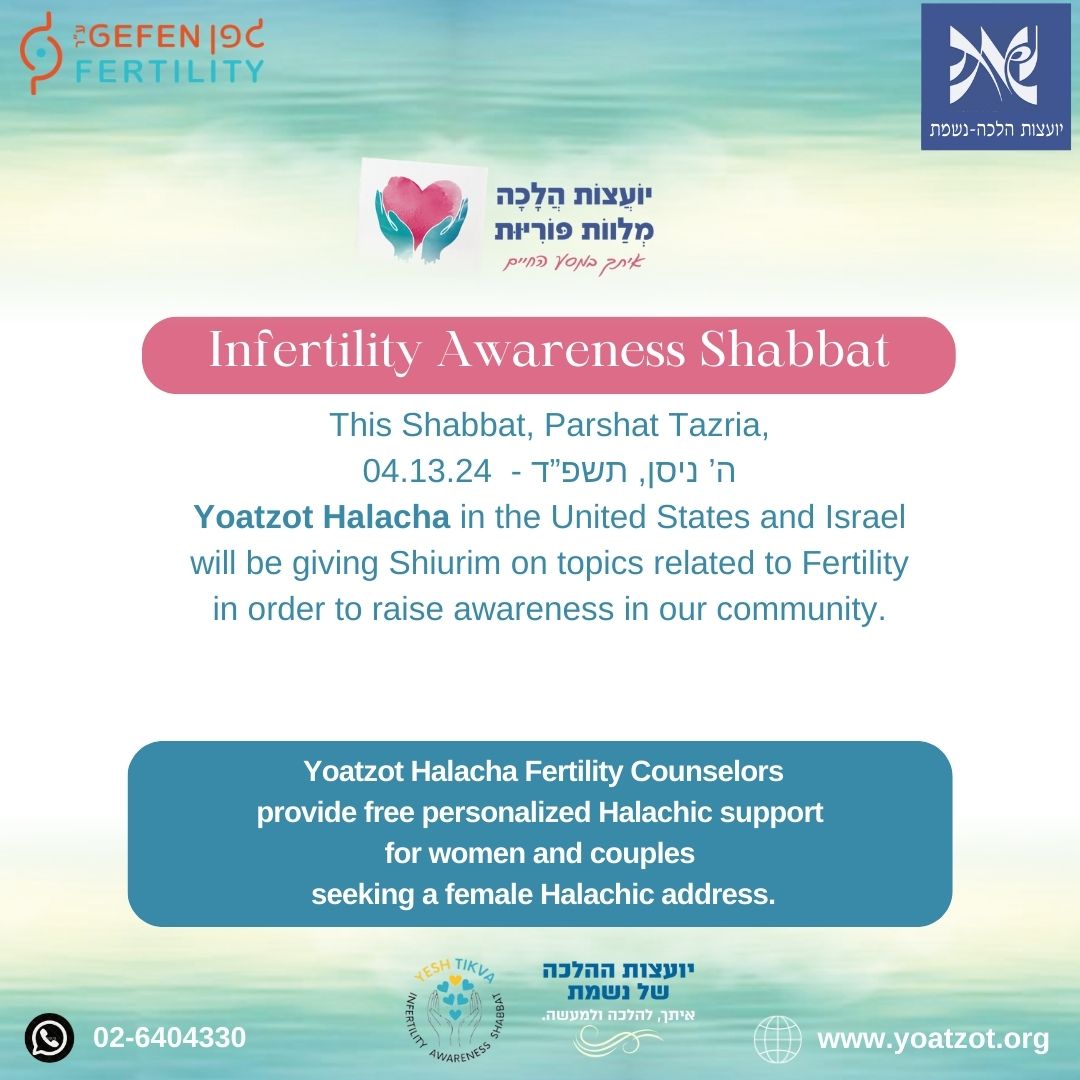Et tzarah – marital intimacy in wartime
6 November, 2023
 Question:
Question:Could you please tell me more about the inyan of Eis Tzara? I find I am constantly thinking about the matzav and would feel inappropriate or guilty focusing on other things such as intimacy.
Answer:The halachic discussion of et tzarah (a time of distress) centers on famine (Ta’anit 11a; Shulchan Aruch Orach Chayyim 240:12). Rema there extends it to other types of communal distress. Still, this is not considered a full-fledged prohibition and later authorities limit his statement and relate to it as a pious practice and not basic halacha. One key reason is that marital intimacy is itself a Torah level mitzvah, and when a difficult situation continues indefinitely, refraining from relations or other intimate touch that draws the couple together could have a detrimental effect on a marriage.
It is understandable to think about the current situation often. But it is important to be able to continue to engage in normal life as much as possible. This, after all, is what we are fighting to preserve. Engaging in marital relations can give us strength to redouble our practical efforts to help with the situation, whether through volunteering or prayer. Acts of chessed and prayer are usually more constructive ways to channel concerns about the situation.
If you find yourself unable to stop thinking about the situation, then you might find it helpful to seek short-term therapy.
Please let us know if we can be of further assistance — and may we hear b’sorot tovot soon!
This internet service does not preclude, override or replace the psak of any rabbinical authority. It is the responsibility of the questioner to inform us of any previous consultation or ruling. As even slight variation in circumstances may have Halachic consequences, views expressed concerning one case may not be applied to other, seemingly similar cases. All health and health-related information contained within Nishmat's Women's Health & Halacha Web site is intended to be general in nature and should not be used as a substitute for consulting with your health care professional. The advice is intended to offer a basis for individuals to discuss their medical condition with their health care provider but not individual advice. Although every effort is made to ensure that the material within Nishmat's Women's Health & Halacha Web site is accurate and timely, it is provided for the convenience of the Web site user but should not be considered official. Advice for actual medical practice should be obtained from a licensed health care professional.
For further questions or comments: 
The Nishmat Women's Health and Halacha Site is a public service of Nishmat, The Jeanie Schottenstein Center for Advanced Torah Study for Women. This project and others like it are made possible by contributions from people like you. If you have benefited from the service, and wish to enable us to help others, click here to donate.
Users of Internet filtering services: This site discusses sensitive subjects that some services filter without visual indication. A page that appears 100% complete might actually be missing critical Jewish-law or medical information. To ensure that you view the pages accurately, ask the filtering service to whitelist all pages under yoatzot.org.






 Question:
Question:







